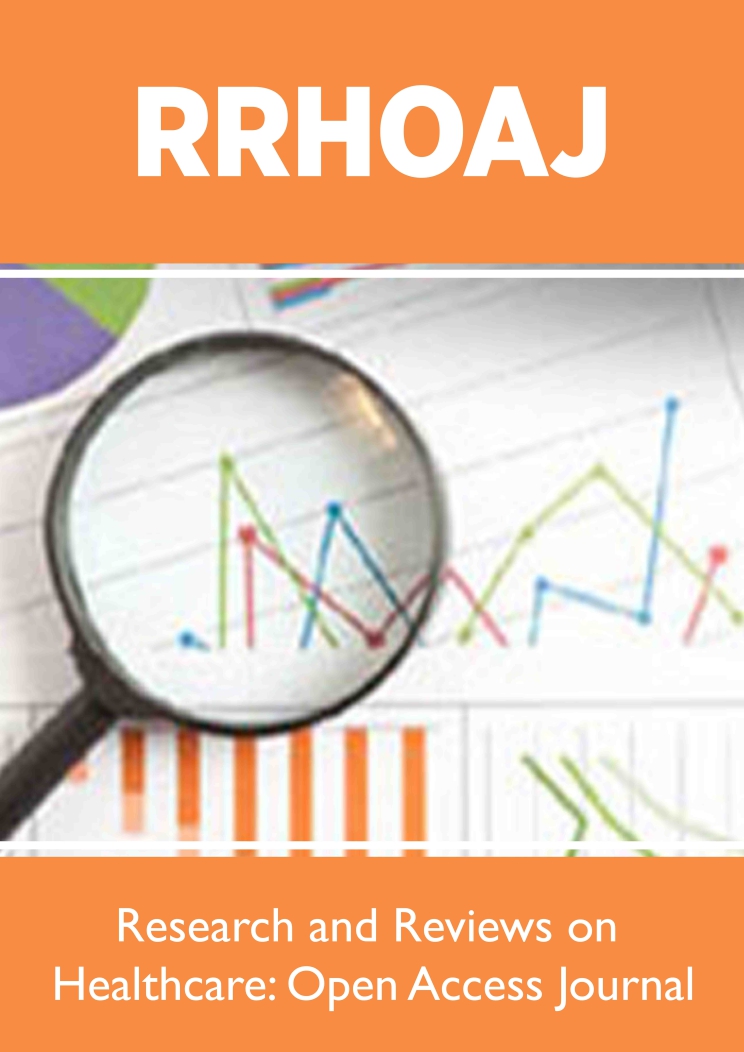
Lupine Publishers Group
Lupine Publishers
Menu
ISSN: 2637-6679
Mini Review(ISSN: 2637-6679) 
Social Consciousness and The Mind Volume 5 - Issue 4
Charles Pidgeon*
- Neuroscience Sensory Unit, which I founded and operate, USA
Received: July 07, 2020; Published: July 17, 2020
Corresponding author:Charles Pidgeon, Neuroscience Sensory Unit, which I founded and operate, USA, Email: neurosensoryunit@gmail.com
DOI: 10.32474/RRHOAJ.2020.05.000216
Mini Review
Mini Review
Today, the COVID-19 problem has raised social consequences more than any time in modern society. Few, if any believe that God (god) will solve the global population of the current COVID-19 pandemic; instead they believe that the scientists will be the global hero’s’. This idea has recently been epitomized from a comparison of how Seattle handle the COVID-19 outbreak vs New York City (NYC). Seattle gave control to the scientists whereas NYC did not. Consequently, Seattle had a 6 times reduced infection rate compared to NYC during the initial months of the outbreak. At no other time in contemporary society has global social consciousness been as profoundly obvious [1].
Scientists, using their minds, have typically played a background role in political decisions and America has suffered because of this. Too many people in the general population don’t understand how scientists contribute. The COVID-19 pandemic increased the social status of scientists because it is from minds of scientists that will solve the problem. Embodied Cognition [2] defines the Mind as being the dynamic (50 millisecond rates) interactions between the brain, body, and environment. Scientists must use their (i) brain to think of solutions to the Pandemic and design experiments to solve the problem, (ii) body to carry out the experiments, and (iii) their environment also to carry out experiments. Hence it is the Minds of many different people that will solve all the problems needed to survive the Pandemic with scientific minds solving the discovery aspects needed to fight the virus. The obvious conclusions is that the hopes of people are rooted in the collective minds of other people. Currently, the Mind was posited by Kiverstein J and Miller M [2] as follows:
“…We will no longer be able to claim that the brain is the organ of the mind. Instead we will need to think about mind and the cognitive processes that make up the mind at the level of the whole brain-body-environment system.”
However, during historical times, Religions, and more specifically belief in God, was the unifying social fabric that gave people hope in times of war, pandemics, etc. To continue or maintain social consciousness, it is useful to compare origin of each societie’s hope during historical times with contemporary society. This can be achieved by comparing the word God to Mind in some of the main beliefs in society in both a religious and financial context. With regard to religion as a source of hope, the original Serenity Prayer (SP) [3] epitomizes belief in god, yet contained significant social wisdom:
God, grant me the Serenity to accept the things I cannot change, change the things I can, and the wisdom to know the difference.
The SP attributes God to a person achieving peace and serenity. In other words, people did/do not have to rely on themselves for accepting things they cannot change and changing the things they can. Noteworthy, there is universal social wisdom (sw) following the word God in the SP. However, from a human perspective the sw advice can only be implemented when people use their minds. Consequently, I suggest substituting the word Mind for God. This substitution humanizes the SP and I have denoted this modification as the hSW (human social wisdom statement), which is not a prayer. It is written as
Mind, grant me the Serenity to accept the things I cannot change, change the things I can, and the wisdom to know the difference.
The original SP was written in 1934 by Reinhold Niebuhr, approximately 85 years ago, and Niebuhr was a Religious scholar [3]. However, over the last several decades a scientific understanding of the Mind has exploded from many perspectives which include neural processing of creativity, decision making, emotion, attention, sensory system cortical processing, etc. It is timely for the global community to consider and think about the contemporary significance by contrasting the SP to the hSW. Many 12 step
addiction recovery programs, particularly Alcoholics Anonymous,
utilize the SP and this comparison will provoke discussions that
lead to an increased understanding of social consciousness with
regard to the role of the mind in human behavior.
Using the word God creates a prayer, i.e., a deity, who can give
Serenity, whereas using the word Mind(s) means that people are
to take responsibility for their own Serenity. In support of hSW
being more contemporary, it has recently been published [4]. Fred
Previc’s opinion of the contrast between SP and hSW is interesting:
“God’ may be the producer of the universe but ‘god’ is a product of the human mind and its dopamine.” “god” would exist even if “God” doesn’t.”
which posits that the concept of any god existing is a direct
consequence of human minds, i.e., human minds created all god
concepts. This resurrects and elucidates the age old Philosophical
and Theological debate regarding God came first and created
human’s vs Humans came first and created different gods, using
their minds.
More salient to improving social consciousness are thought
provoking concepts that form a stronger link between people
who are commercial globalizers (goods and services) with social
globalizers (pursuing the qualia of human life). A common element
between these groups is purchasing goods and services using cash
or credit cards. It is suggested to modify both American currency
and credit cards to stimulate conversations between commercial
and social globalizers. Regarding American currency
“…a Joint Resolution by the 84th Congress (P.L. 84–140) and approved by President Dwight Eisenhower on July 30, 1956, requires that “In God We Trust” appear on American currency.”
Wikipedia,https://en.wikipedia.org/wiki/In_God_We_Trust
Note that the capitalized form of “In God We Trust” is used
today and in1956 the religious situation of America justified using
God. Today, it is more salient to modify this phrase to “In Minds We
Trust” because it is much more contemporary by emphasizing that
all goods and services, infrastructure and political parties, etc., were
created from the minds of people. Suggesting this modification
provokes conversation among virtual every American social group.
An example of a $100 bill follows
Credit cards are used instead of cash for most purchases in
America. There are trillions of credit card transactions per year in
America. For this reason it is suggested that a Social Credit card be
created with the following cognitive anchors: (i) In Minds We Trust,
(ii) an image of a human head, (iii) an American flag deformed to
represent a brain and (iv) the phrase We the People as written in
the United States Constitution. An example of such a credit card is
shown in Figure 2.
Figure 1 Recognizing that the world was built from people using
their Minds, facilitates social reform from being primarily guided by
money considerations, to at least some emphasis that money, and
what it is used for, is a creation from and for society by people using
their Minds. Social guidance may be more socially significant today,
than any other point in history. A two-penny tax on each credit card
transaction could generate than $1B annually for social purposes,
perhaps health care (for instance the poor). Why Not? The people
paying the credit card fee would be the people getting health care.
Obviously, the funds could be used for any social purpose, but should
be used to impact the greatest number of people. A better use of the
money generated may be to use it as a fund for all Politicians raising
money for election purposes. In other words, this could minimize,
or perhaps eliminate, the need for big donors who have significant
control of the Congress and Senate in America. If more money is
needed for political campaigns than merely increase the tax to 3
peenies which would generate multiple billions of dollars annually.
Probably more provocative in stimulating social discussions and enhancing Social Consciousness are Mind Money Credit Cards (Figure 2) instead of Mind Money currency (Figure 1). Credit cards are used much more frequently in paying for goods and services than cash. We suggest creating these items is particularly timely given the current elevated state of Social Consciousness. A key question is what the role of the deity gods in helping people with regard to providing hope for the future. From the above discussion I believe that the Minds of people will have a more significant role in social consciousness than gods.
References
- Duhiggm C (2020) Seattle’s Leaders Ley Scientists Take the Lead. New York’s Did Not, The New Yorker. Annals of Epidemiology May 4, 2020 Issue.
- Kiverstein, J and Miller M (2015) The embodied brain: towards a radical embodied cognitive neuroscience. Front Hum Neurosci May 06.
- Kirsch A (2015) The Ironic Wisdom of Reinhold Niebuhr. The New York Review of Books.
- Pidgeon C (2014) Social Conscious Pedagogy. Mainspring Books Publisher, in press. July release.

Top Editors
-

Mark E Smith
Bio chemistry
University of Texas Medical Branch, USA -

Lawrence A Presley
Department of Criminal Justice
Liberty University, USA -

Thomas W Miller
Department of Psychiatry
University of Kentucky, USA -

Gjumrakch Aliev
Department of Medicine
Gally International Biomedical Research & Consulting LLC, USA -

Christopher Bryant
Department of Urbanisation and Agricultural
Montreal university, USA -

Robert William Frare
Oral & Maxillofacial Pathology
New York University, USA -

Rudolph Modesto Navari
Gastroenterology and Hepatology
University of Alabama, UK -

Andrew Hague
Department of Medicine
Universities of Bradford, UK -

George Gregory Buttigieg
Maltese College of Obstetrics and Gynaecology, Europe -

Chen-Hsiung Yeh
Oncology
Circulogene Theranostics, England -
.png)
Emilio Bucio-Carrillo
Radiation Chemistry
National University of Mexico, USA -
.jpg)
Casey J Grenier
Analytical Chemistry
Wentworth Institute of Technology, USA -
Hany Atalah
Minimally Invasive Surgery
Mercer University school of Medicine, USA -

Abu-Hussein Muhamad
Pediatric Dentistry
University of Athens , Greece

The annual scholar awards from Lupine Publishers honor a selected number Read More...

.png)




